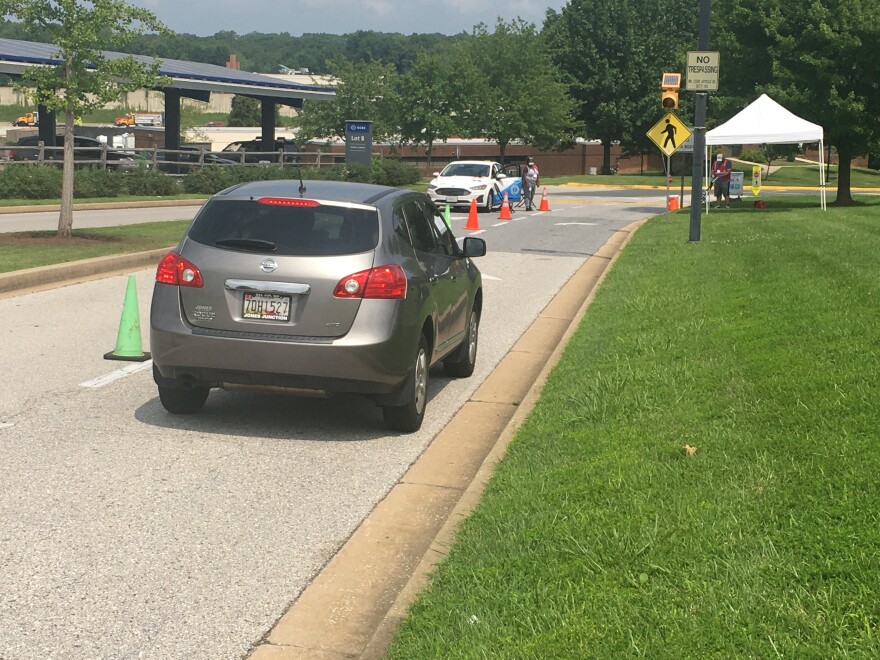Four-year colleges across the country are deciding whether it’s safe to have in-person, classroom instruction. So are community colleges.
The Community College of Baltimore County is offering some in-person classes. But before you set foot on campus to get to that class, you will have to pass a test, a screening for COVID-19.
When you drive up to the entrance of the Community College of Baltimore County’s Essex campus, you are stopped at a checkpoint. While sitting in your car you will be screened by a safety monitor, like Sophia DeVito.
“A couple of questions and a temperature check,” DeVito said.
You’re asked if you’ve lost the ability to taste or smell in the past 24 hours, if you’ve had symptoms like a cough, fever, or sore throat, or in the past two weeks have been in contact with someone who has COVID-19.
If you pass you get a smiley sticker that says “CCBC Cares” on it. There’s a different color sticker each day, so no cheating.
Another part of DeVito’s job is to patrol the campus. If you’re not wearing a sticker, a safety monitor screens you on the spot. They also hand out face masks for people who don’t have them, and clean touchpoints.
“Everyone’s been very appreciative, very nice about it,” DeVito said. “It’s been good for everyone, I think.”
Melissa Hopp, the Vice President of Administrative Services for CCBC, said about 100 safety monitors have been hired at around $13 an hour for the school’s three campuses and its extension centers. Hopp said they are handing out 600 to 700 stickers a day. She said the screening is working.
“There have been, you know not a lot, but you know under 50 people who have been turned away from campus because of the screening,” Hopp said. “That’s a good thing.”
The fact that people are driving on and off campus and not living there is an advantage when it comes to COVID-19, according to Martha Parham with the American Association of Community Colleges.
“They don’t have students who are spending the night so they have opportunities to sanitize facilities and things like that,” Parham said.
While CCBC is offering a hybrid of online and in-class instruction, Baltimore City Community College is all online.
Parham said community colleges across the country are making different decisions about in-person classes.
The pandemic also has community colleges trying to figure out how to reduce or eliminate the cost of going to a two year school.
Parham said, “If you consider that community college students, the majority of them work, and so with the economic and employment downturn that happened because of COVID, if they don’t have jobs, they certainly don’t have money for tuition regardless of how low it is.”
Sandra Kurtinitis, the president of CCBC, said they are pooling what money they can to make CCBC tuition free for as many students as possible. This includes grants, scholarships, and $10 million in COVID stimulus money. Add it all up and Kurtinitis says it comes to around $35 million.
“Our slogan says something like, ‘Tuition free, click here and see if you qualify,’” Kurtinitis said.
The pandemic has wrecked the nation’s economy. Kurtinitis said the school is looking for ways it can help people who are going to come out of this in trouble.
“They’re going to come out of it without jobs,” Kurtinitis said. They’re going to come out of realizing they can’t go away to school. They’re going to come out of it realizing they just graduated high school and they’re not sure what they can do.”
Kurtinitis said in previous years, about 45% of CCBC students received financial aid. She expects that now will increase to about 50 or 55%. Kurtinitis also hopes it will help the school stabilize its enrollment, which has been declining.




